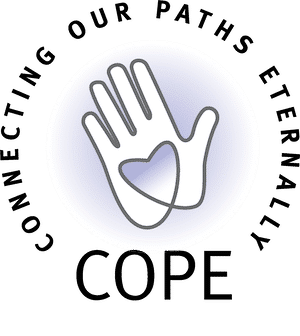“When I die
Give what’s left of me away
To children
And old men that wait to die.
And if you need to cry,
Cry for your brother
Walking the street beside you
And when you need me,
Put your arms
Around anyone
And give to them
What you need to give to me.
I want to leave you something,
Something better
Than words
Or sounds.
Look for me
In the people I’ve known
Or loved,
And if you cannot give me away,
At least let me live in your eyes
And not on your mind.
You can love me most
By letting
Hands touch hands
By letting
Bodies touch bodies
And by letting go
Of children
That need to be free.
Love doesn’t die,
People do.
So, when all that’s left of me
Is love,
Give me away”
―
I remember sitting bored and drifting off in synagogue during high holiday services a few years ago. And I glanced down at the page and started to read what looked like a typical biblical meditation or psalm (preceding the kaddish prayer for loved ones who have passed). Except by the time I finished reading and digesting it in my head, my mouth dropped open, a lump formed in my throat and I might have whispered the word “wow” to myself. I re-read it several times making sure I acknowledged how this made me feel a little different. Better. And then, I snapped a picture of the page with my cellphone at this moment (not really considering the setting or the moment). What was it about this poem? Why did I and my co-president Jen (who I had never met at the time) both have this almost identical experience in temple during services (likely remembering our loved ones) while reading these words? The poem, Epitaph written by Merrit Malloy, is actually a fairly popular one (after having been featured on a popular crime drama and circulated online) and is only a few decades old. Every line is a deep lesson and beautiful nugget of wisdom for those who have grieved. It contains universal truths. For me, the power and comfort come from the speaker telling the reader that they want their life AND death to do as much good for the world as possible. Use their love to better the world. Inspire the good in others. And in a way that we can understand today (following pandemic and now war), the reader is guided to cry and feel pain not for the dead, but for those that are still alive and suffering. Help those that need help. Sometimes, a suggestion of a different perspective is all that is needed in order to change feelings of pity, anger and despair into something better. And to redirect your energy. This is a selfless way of looking at death. One of my favorite ideas that these words suggest is that we can keep our loved ones alive after death by purposeful acts of love (and not just remembering). And that is what I’m going to continue to do to keep my angel alive.
– Larry Mergentime
I was at Yom Kippur services, three months after I lost my brother, somewhat mindlessly reading through random pages of the prayer book when I first read these words. When I finished, I read them again; when I finished a second time, I knew I needed to have them. I considered for a moment, “borrowing” the prayer book so I could bring it home, make a copy of the page, and bring it back, but I was a little worried it would look like stealing. And who steals something on the holiest day of the year for Jewish people? Right, nobody. I realized I could simply take out my cell phone (not great, but better than stealing) and take a picture of the page- so that’s what I did. The words spoke to me and my loss in a way I had not yet experienced, and maybe in a way I still haven’t experienced since then. People say that our loved ones are always with us but what does that mean? For me, this poem taught me that the love for my brother will always be with me and it showed me how to feel and use that love so that he will always be with me. When I read this poem, I almost pretend that my brother wrote it- that it is my brother telling me that the best way I can love him now is to love others, to look for him in our family and in his friends. There are pieces of ourselves in everyone we know and love. My brother isn’t here physically anymore, and that will never change, but he was here for almost 40 years and he knew and loved a lot of people in his life. In the moments I am missing him a little more than usual, I look for pieces of him that will forever exist in me, our family, and his friends- and I always find him- because that love will always be there.
– Jen Schwartz

